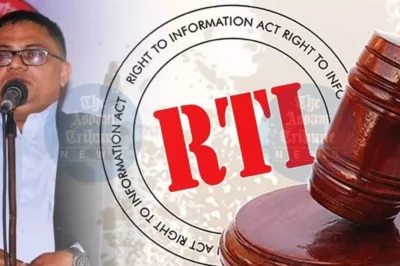In a significant legal development, the Gauhati High Court granted bail to RTI activist Dulal Bora, who was arrested in connection with the death of BJP worker Jagadish Hazarika. Bora’s arrest on September 25 by the Delhi Crime Branch involved multiple serious allegations, including extortion, conspiracy, and cheating, in addition to his alleged role in Hazarika’s death. The court’s decision marks a pivotal moment in a case that has garnered significant attention across Assam and beyond, spotlighting complex intersections of activism, politics, and legal scrutiny.
Background of the Case
Dulal Bora, a known RTI activist, was apprehended in September amid an investigation by the Delhi Crime Branch. His involvement was reportedly tied to multiple charges related to his interactions with Jagadish Hazarika, a BJP worker who died under disputed circumstances. While the exact details surrounding Hazarika’s death remain complex, authorities had filed charges implicating Bora in a conspiracy and accusing him of extortion and fraud. The allegations suggested that Bora’s actions contributed in some way to Hazarika’s death, thus intensifying the case’s public and media visibility.
Gauhati High Court’s Decision
The Gauhati High Court’s decision to grant Bora bail hinged on several factors, including the merits of the presented evidence and Bora’s role as an activist. In its judgment, the court took into account Bora’s background, his previous engagement with social causes, and the nature of the accusations. The court’s bail conditions reflect a balance between due process and the need to ensure Bora’s cooperation with the ongoing investigation.
The bail decision has significant implications for the case, as it allows Bora to contest the allegations outside detention while also meeting certain conditions stipulated by the court. For Bora, this decision marks a reprieve that enables him to continue his activism while defending himself against the charges.
Impact on Activism and Public Perception
Bora’s case highlights the risks that activists often face when involved in high-stakes political matters, especially those related to government transparency. Known for his outspoken advocacy, Bora has long used RTI (Right to Information) requests to challenge corruption and hold public officials accountable, which has made him both a public figure and, at times, a controversial one.
The bail ruling may have broader implications for public perceptions of activism in Assam and India, potentially emboldening other activists who operate under similar scrutiny. However, it also underscores the need for caution in navigating political landscapes, where accusations of conspiracy and misconduct can quickly escalate.
Looking Ahead: Legal Proceedings and Public Interest
As legal proceedings continue, the case remains under intense public and media scrutiny. Bora’s bail does not mark the end of the case but rather allows him to participate in the legal process from outside custody. His case raises essential questions about the balance between activism and legality, especially in politically charged scenarios.
For now, the court’s decision reflects a cautious approach, allowing Bora the opportunity to defend himself while still holding him accountable to legal proceedings. As developments unfold, this case will likely continue to serve as a focal point for discussions about activism, political freedom, and judicial fairness.








Leave a Reply